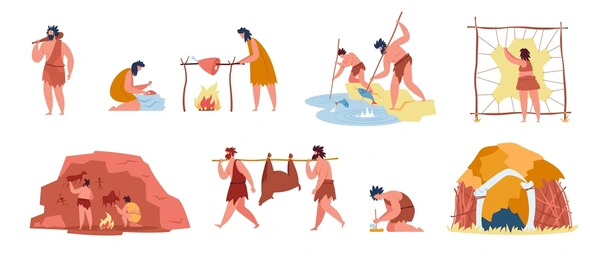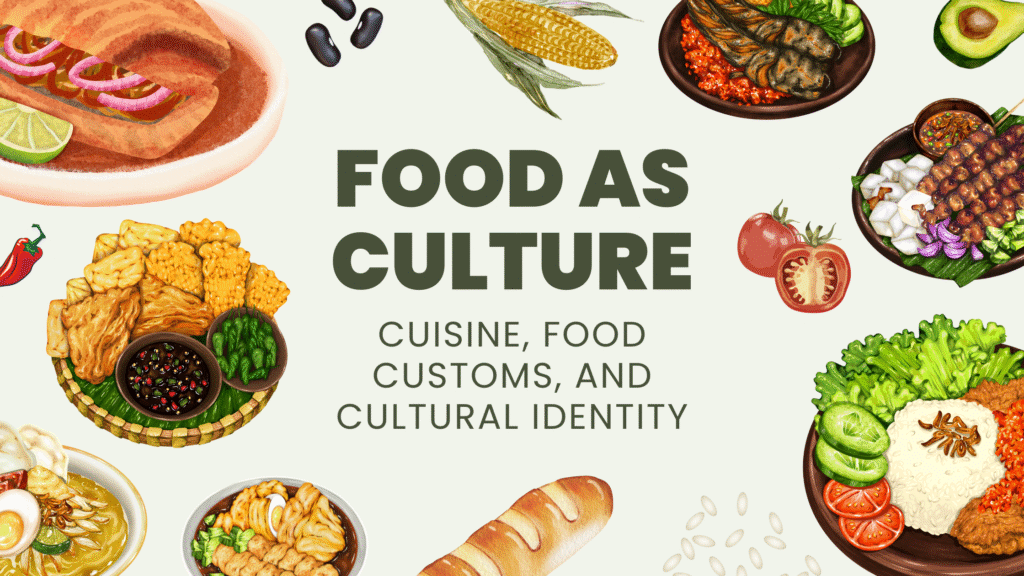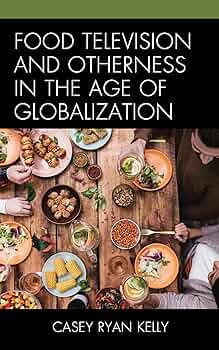The History of Food India stands at a pivotal juncture in its journey from a developing nation to a potential global economic powerhouse. As of 2025, the country has made significant strides in various sectors, yet faces enduring challenges that require concerted efforts to overcome. The story of humanity can be traced through the history of what we eat, how we prepare it, and the rituals we build around it. India stands at a pivotal juncture in its journey from a developing nation to a potential global economic powerhouse.
I
The earliest humans were hunter-gatherers who relied on wild animals and plants. As far back as 2.5 million years ago, early hominids used tools to process meat, marking a turning point in human evolution. With the discovery of fire roughly 1.5 million years ago, cooking became central to human development—making cuisine safer, more digestible, and nutrient-rich.
The Agricultural Revolution around 10,000 years ago was one of the most significant events in nutrition history. In regions like the Fertile Crescent, humans began cultivating crops like wheat and barley and domesticating animals like sheep and goats. This shift enabled the development of settlements, leading to complex societies and cuisine systems. Agriculture made meals production more predictable, supporting population growth and trade.

Food and Ancient Civilizations
In ancient civilizations, cuisine played a vital cultural and religious role. In Egypt, bread and beer were staples, with grain offerings made to the gods. The Greeks celebrated banquets (symposia) as intellectual and spiritual gatherings, while Romans held lavish feasts showcasing wealth and social status. Spices, oils, and imported delicacies symbolized prestige in Roman society.
In Asia, rice cultivation shaped economies and traditions. In China, Confucian philosophy emphasized the harmony of flavors and balanced meals. Indian cuisine, influenced by Hindu and Buddhist beliefs, developed complex spice blends and vegetarian traditions that continue today. Mesoamerican civilizations like the Maya and Aztecs revered maize as a sacred plant, central to both diet and mythology.
Food as Identity and Tradition
Nutrition is deeply entwined with cultural identity. It is a form of expression—of who we are, where we come from, and the values we hold. Every culture has traditional dishes that are passed down generations, often linked to religious or seasonal festivals.
For example, Jewish cuisine includes symbolic meals during Passover, like matzah to commemorate the Exodus from Egypt. In Islamic cultures, the act of breaking the fast with dates during Ramadan is both religious and cultural. In Christianity, the Last Supper is re-enacted through communion, where bread and wine take on sacred meaning.
Best cuisine also plays a key role in rites of passage—births, weddings, funerals—and reinforces community and belonging. Recipes become family heirlooms, and the act of cooking together becomes a shared cultural memory.

Global Trade and the Columbian Exchange
The Age of Exploration dramatically reshaped global cuisine culture. The Columbian Exchange, starting in the late 15th century, involved the transfer of crops, animals, and meals traditions between the Americas, Europe, Africa, and Asia. Tomatoes, potatoes, maize, and chili peppers traveled from the New World, while wheat, sugar, and cattle went westward.
These exchanges revolutionized diets. Italy, now famous for tomato-based cuisine, only adopted the tomato after it was brought from the Americas. Irish reliance on the potato, also an American import, led to both prosperity and tragedy—the latter during the Great Famine of the 1840s.
Colonialism, slavery, and migration also contributed to the blending of nutrition traditions. Enslaved Africans brought cooking techniques and ingredients that formed the basis of Creole and soul meals in the Americas. In India, British colonialists adapted local flavors, giving rise to Anglo-Indian dishes like curry.
Food in the Age of Globalization

The 20th and 21st centuries have seen meals become more globalized than ever. Fast food chains like McDonald’s and Starbucks represent a form of cultural export and homogenization. Yet, the global spread of meals has also led to creativity and hybridization. Sushi burritos, Korean tacos, and ramen burgers are just a few examples of fusion food.
However, globalization also threatens traditional food cultures. Mass production, environmental degradation, and corporate monopolies can erode local food systems. Movements like Slow Food and farm-to-table have emerged to counter these trends, emphasizing sustainability, seasonality, and heritage.
Technology also plays a growing role in food culture. Social media platforms have transformed food into a visual and viral medium. “Foodies” now document their meals online, and viral food trends can emerge overnight. At the same time, apps and services have changed how we shop, cook, and eat—bringing both convenience and new challenges.
The Future of Food
Looking forward, food will continue to be at the intersection of innovation, ethics, and culture. Climate change is already affecting global agriculture, prompting shifts toward plant-based diets and sustainable practices. Lab-grown meat, vertical farming, and AI in agriculture are reshaping what we consider food and how we produce it.
Culturally, there is a growing interest in preserving culinary traditions. UNESCO has recognized certain food practices—like the Mediterranean diet and Japanese washoku—as Intangible Cultural Heritage. This signals a recognition that food is not just a necessity, but a vital part of human culture worth protecting.
Conclusion
Food is a mirror of human history and a living part of culture. It nourishes not just the body but also the soul, telling stories of survival, migration, innovation, and identity. Whether shared at a family table or served in a bustling street market, food carries memories, values, and dreams. As we face new global challenges, the cultural significance of food remains more relevant than ever—reminding us of our shared humanity and the deep connections that begin with a single bite.